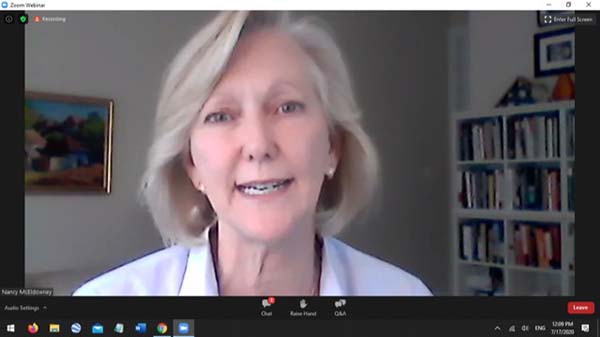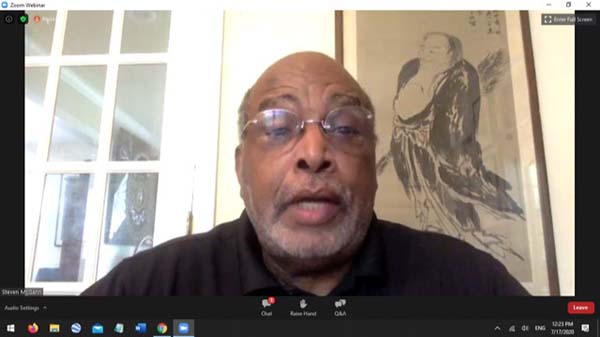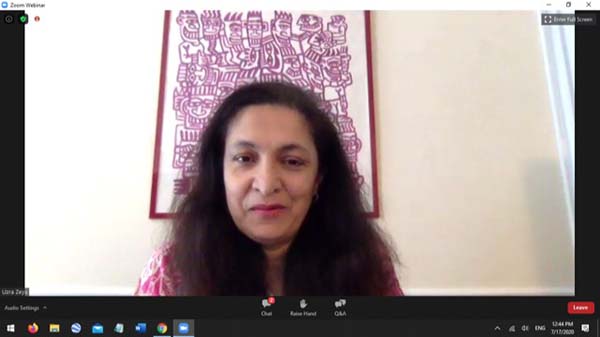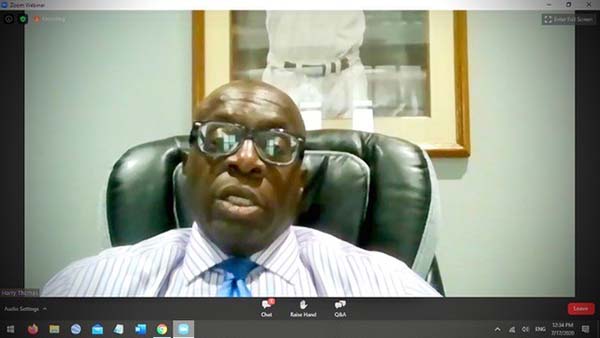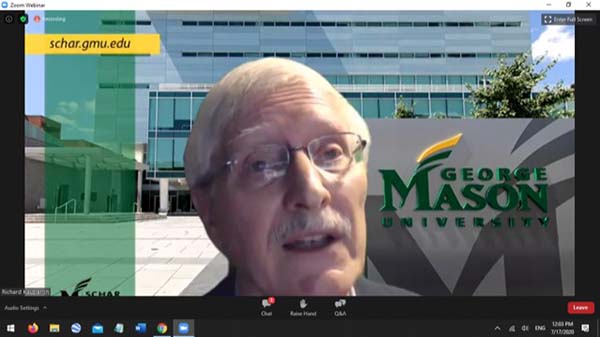In This Story
Originally published on July 20, 2020
Peace negotiations that involve women on the negotiating team have proven to be longer-lasting and more durable. However, it appears that the Trump administration’s Department of State has gone backward in its diversity and inclusion of women and minorities, despite multiple class action lawsuits and other attempts at legal recourse. The diversity of the United States is one of the nation’s strongest assets, but that diversity is not being represented properly to the world.
Those ideas and others were part of a lively Schar School of Policy and Government panel discussion on Friday, July 17, that brought five State Department veterans together to dissect “Social Justice in America: Human Rights and the Practice of U.S. Foreign Policy.” It was the fifth and final webinar in a week of discussions examining civil and human rights. The hour-long panel was attended by more than 50 viewers from around the country. View recordings of the previous discussions.
“It’s real questionable whether or not the State Department has gone backwards,” said C. Steven McGann, former ambassador to Fiji, Nauru, Kiribati, and the Kingdom of Tonga and Tuvalu. “The real question is whether or not its ever gone forward.”
Understanding the culture of the diplomatic institution, and what that culture springs from, is important to consider if we are to bring about social reforms. McGann pointed out that Black Americans have a long history of diplomatic service yet have seldom found the State Department a welcoming environment for minorities. If the government seeks to represent the American public as it is, minorities need to be recruited with open arms and made to feel welcome.
The panel was moderated by Schar School Distinguished Visiting Professor Richard Kauzlarich, former ambassador to Bosnia and Herzegovina and Azerbaijan. In addition to McGann, panelists included Nancy McEldowney, former ambassador to the Republic of Bulgaria and now a distinguished professor at Georgetown University; Harry Thomas, former ambassador to Zimbabwe, the Philippines, and Bangladesh and now senior fellow at the Jackson Institute for Global Affairs at Yale University; and Uzra Zeya, former Chargé d’Affaires at the U.S. Embassy Paris and now the president of the Alliance for Peacebuilding.

